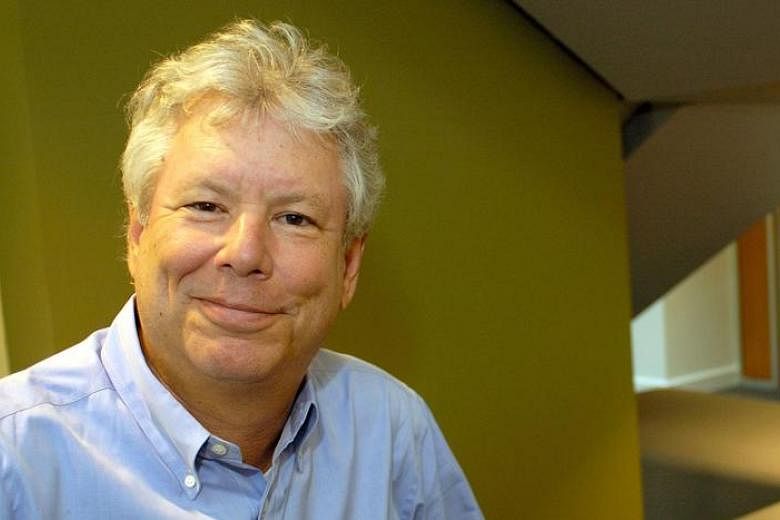University of Chicago professor Richard Thaler won the 2017 Nobel prize in economics this week for his pioneering and influential work in behavioural economics.
Here's a quick glimpse into his work:
We're only human
Although it seems an obvious truth, Thaler's work showed how people don't always behave rationally when making economic decisions.
Unlike classical economists, who see people making economic decisions based on clear-eyed logic, behavioural economists allow for irrational behaviour and study how human flaws like lack of self-control and fear of losing can push people toward decisions that don't actually benefit them economically.
This theory can be applied in microcosm to individual behaviour, but also very broadly to society or financial markets.
For example, Thaler looked at the shock vote for Brexit - Britain's decision to exit the European Union - and suggested that behavioural economics could explain: When it came to the crunch, many people went with their gut instincts instead of making a clear, rational choice.
Nudge, nudge
Thaler is also one of the founders of the "nudge theory" which stems from behavioural economics - the idea that you can use subtle nudges to encourage people to make better decisions.
In 2008, he co-wrote the global bestselling book Nudge: Improving Decisions about Health, Wealth, and Happiness in 2008 with fellow US professor Cass Sunstein
The book influenced policymakers around the world as it explained things like how you could get people to eat more healthy foods simply by placing them at eye-level on supermarket shelves, or get them to donate their organs or save for retirement by automatically enrolling them in plans with opt-out clauses.
Thaler says his favorite example of a nudge was how Amsterdam's Schiphol Airport slashed cleaning costs around its urinals by etching images of flies on them, giving men something to aim at. This strategy was copied in urinals around the world.
Selena Gomez and hot hand
Thaler had a cameo appearance with pop star Selena Gomez in the film "The Big Short".
The 2015 Oscar-nominated movie is based on Michael Lewis's best-selling book of the same name. It follows the lives of some real people just before and during the 2008 financial crisis that saw the build-up and subsequent collapse of the US housing market spread into a global credit bubble that also burst.
In a scene where actress Selena Gomez plays blackjack, Thaler uses the psychological fallacy of a "hot hand" to explain the rise of the "synthetic CDO", a collateralized debt obligation and complex financial tool.
They explain how increasingly larger side bets on Gomez's hand of blackjack are great when she is winning - a metaphor for a rising housing market. However when Gomez loses the hand - or the housing market falls - those increasingly larger side bets set off a domino effect with larger losses at the table equating to the fallout spreading to the financial market and economy.
Here's them in action in the scene:
Sources: The Guardian, Slate Magazine,


